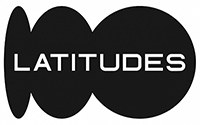A B S T R A K T
This March at Nel we turn our attention to abstract painting with a small group exhibition of South African artists, most specializing in abstract work and some visiting abstraction.
Since seemingly dying a silent death with the fall of the Abstract Expressionists of America in the 1960s most artists have steered a wide berth around abstraction. As much as art critic Clement Greenberg denounced what he referred to as Kitsch art, everyday art, art made for consumption, in an essay titled Avant-Garde and Kitsch (written with a strong Marxist leaning) his beloved abstract expressionist art, and later the artists working in Color Field, and post painterly abstraction became the perfect vehicle for the excesses of wealth of the top collectors of abstract expressionist art. The qualities Abstract Expressionism espoused - a ‘purity’ with an aversion to being channelled along political lines and the narratives of the time became the reasons for its corruption. Abstraction’s political aloofness made it desirable to an elite not keen on holding up any mirrors. Abstract art became a currency for the super wealthy, elitist in the extreme and far from innocent with regards to the ideology it served.
It remains useful to remind ourselves that abstract art pre-dates the modernists of the mid-20th Century. Southern Africa is seen as the cradle of humankind, we find rock drawings and engravings of abstract form dating back 80 000 to 70 000 years. Africa is rich with abstraction in the form of pattern used on ceramic and in beadwork. It appears on dwellings and in caves.
Despite New York’s heist of Modern art in the middle of the last century, abstract art has endured and today it even seems to be enjoying a renaissance. To some, working figuratively proves to be limiting, keeping artists bound in past narratives and unable to break away from what some find to be an insular vision of reality and of existence.
Abstract notions like time, emotive experiences, the metaphysical and the spiritual are best communicated through the abstract. Abstraction does however not have to be completely aloof of the issues of the day. Artists may have subjects and themes they explore and certain artists weigh in on current societal issues and concerns but through an abstract visual vocabulary. Leaving much power of interpretation or experience of the art, in the hands of the viewer or audience.
This exhibition does not aim to show a comprehensive selection of current abstract work in South Africa, it merely shows a degree of variation and individual approaches to the painted abstract by a small selection of practising South African and diaspora artists.
Read More












